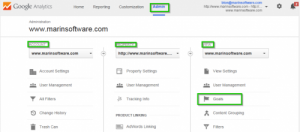
Here’s a disappointing statistic: A recent survey by job search website Joblist found that nearly three in four people (73%) don’t see an opportunity for growth in their current jobs. This comes at a time when employees are being more thoughtful about the work they’re doing, according to Joblist CEO Kevin Harrington.
“The pandemic has created this occasion where workers are thinking more deeply about their relationship with work and relationship with employers,” he says, noting that employees and job seekers are frustrated that their employers are treating their relationship as very transactional instead of focusing on development. This makes employees feel expendable.
But the good news is that there are ways to build marketable skills, even if your job doesn’t have a clear path to advancement. So, before you label your job a “dead end,” think about the various ways you can make it work for your future.
Take advantage of training
Learning and development options have become more plentiful and accessible, especially during the last five years, says Ravin Jesuthasan, global transformation leader at Mercer. Platforms like LinkedIn Learning, Udemy, Coursera, and others are relatively inexpensive. In addition, some companies have developed their own digital training centers where employees can take courses in a variety of areas, such as technology, soft skills, or leadership.
“We’re seeing this era of skills become the currency of work, no longer the job,” Jesuthasan says. To stay abreast of the skills you’re going to need next, he suggests studying the developments in your industry and thinking about what you’ll need to know or be able to do in order to keep up: “Where are you seeing growth? What’s being demanded, either in the industry you’re in, or an industry you’d like to get into?”
Another useful resource to find areas of study? Company job boards. Consider the types of skills and abilities that are being listed in job advertisements of companies you want to work for. Those are good clues about what to study.
Also, look for tuition reimbursement or free training opportunities, says career and executive coach Terri Jacke, author of Is This a Lousy Job or Is It Me?: A Real-Life Guide for Achieving Success at Work. These may provide opportunities to build skills and knowledge that cost nothing out of pocket.
Create your own opportunities
Jacke counsels her clients to build their own “personal development academies,” where they seek out opportunities to build the skills they need to advance or get a new job. In addition to internal or external training opportunities, your “dead-end” job may offer opportunities to build your character or take on new responsibilities without the same pressure you might have if you were being considered for a promotion. “I tell them, ‘Use this to learn everything you can learn, including feeling free to make mistakes,” she says. Some ways to consider:
- Join a committee where you can take on responsibilities that will build skills.
- Ask to be part of a cross-functional effort in the company, such as an employee engagement team.
- Organize a lunch-and-learn event, business book club, or other programs for employees.
- Find out if your department or supervisor has a project you can join to learn new skills.
Jacke says virtually every job has some opportunity for learning. “Take whatever opportunity you can,” she suggests. Jesuthasan adds that volunteering, either within your company (by offering to join a project that may be a little outside your purview) or outside the company may be a way to build a skill set.
Focus on soft skills
Skills like negotiation, communication, leadership, and social influence are all important to employers across industries. And most workplaces offer opportunities to build these so-called soft skills, Harrington says. Are there ways you can improve your communication skills by giving presentations or writing for a company newsletter? Is it possible to build your social influence within the company or take the lead on an initiative to hone leadership skills?
And don’t miss the opportunity to show off those skills when you start to look for a new role. “I would encourage anyone who’s a job seeker to emphasize those during interview processes. [They are] a good thing to call out in cover letters, especially if you’re trying to transition from one type of role to another,” Jesuthasan says.
Work with a mentor
Explore whether your company has an in-house mentoring program, or approach someone whose experience you admire—either within the company or elsewhere—to see if they will act as a mentor, Jacke suggests. A good mentor can help you spot opportunities to gain more experience or build skills. They may even offer suggestions for growth that you didn’t think of.
Harrington suggests talking to your managers to be sure they understand your personal career goals and interest in growth. It’s not always possible to do so, but if your managers are open to those types of conversations, they may be more apt to keep you in mind for new projects or opportunities if you’re open about your interest in career and professional development, he says.
Be intentional in remote settings
If your job is remote or otherwise not immediately visible to decision-makers or managers, you may have to be more strategic in seeking out opportunities, Harrington says.
“In a remote setting, it becomes more difficult and much more important to be intentional about having those conversations and creating those opportunities for growth, whether it’s a new project or taking a class or going on a path of promotion. I think it’s just a challenge for the workers in general, to remain visible,” he says.
However, using learning platforms, creating or participating in virtual or hybrid programs or projects, and working with mentors are all still possible. You may just need to work harder to find those opportunities.
Fast Company , Read Full Story
(19)






